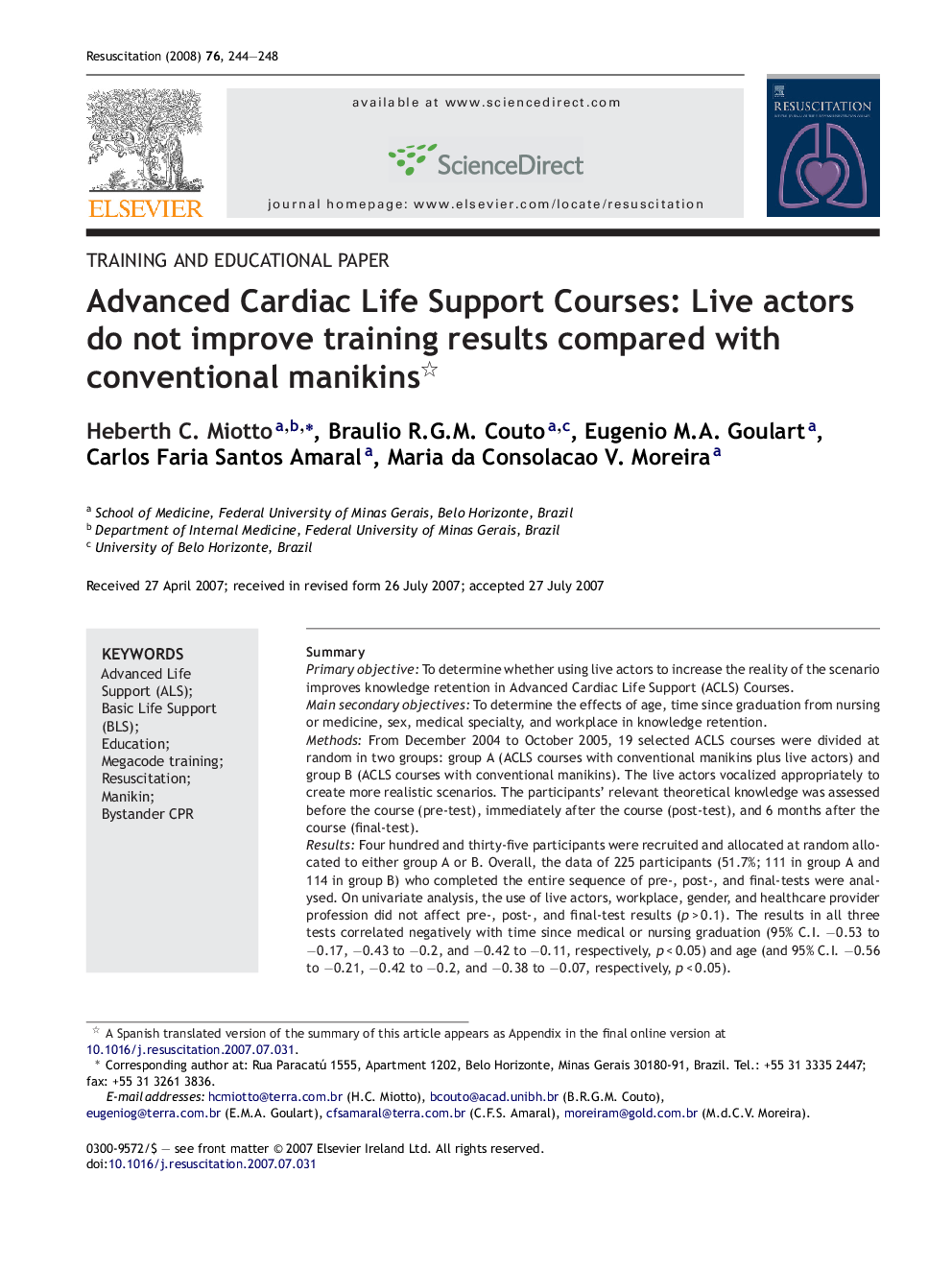| Article ID | Journal | Published Year | Pages | File Type |
|---|---|---|---|---|
| 3011440 | Resuscitation | 2008 | 5 Pages |
SummaryPrimary objectiveTo determine whether using live actors to increase the reality of the scenario improves knowledge retention in Advanced Cardiac Life Support (ACLS) Courses.Main secondary objectivesTo determine the effects of age, time since graduation from nursing or medicine, sex, medical specialty, and workplace in knowledge retention.MethodsFrom December 2004 to October 2005, 19 selected ACLS courses were divided at random in two groups: group A (ACLS courses with conventional manikins plus live actors) and group B (ACLS courses with conventional manikins). The live actors vocalized appropriately to create more realistic scenarios. The participants’ relevant theoretical knowledge was assessed before the course (pre-test), immediately after the course (post-test), and 6 months after the course (final-test).ResultsFour hundred and thirty-five participants were recruited and allocated at random allocated to either group A or B. Overall, the data of 225 participants (51.7%; 111 in group A and 114 in group B) who completed the entire sequence of pre-, post-, and final-tests were analysed. On univariate analysis, the use of live actors, workplace, gender, and healthcare provider profession did not affect pre-, post-, and final-test results (p > 0.1). The results in all three tests correlated negatively with time since medical or nursing graduation (95% C.I. −0.53 to −0.17, −0.43 to −0.2, and −0.42 to −0.11, respectively, p < 0.05) and age (and 95% C.I. −0.56 to −0.21, −0.42 to −0.2, and −0.38 to −0.07, respectively, p < 0.05).ConclusionThe use of live actors did not affect knowledge retention in this group. Older age and a longer period since graduation were associated with the worst scores and the lowest levels of knowledge retention.
